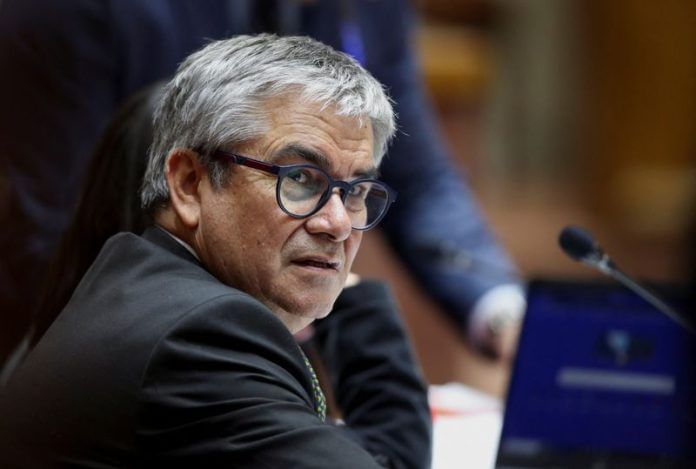By Alexander Villegas and Fabian Cambero
SANTIAGO (Reuters) -Chile’s finance minister Mario Marcel, considered a stabilizing and pragmatic figure in President Gabriel Boric’s administration, resigned on Thursday amid a wider cabinet reshuffle.
In a ceremony at the presidential palace in Santiago, Boric said Marcel was resigning due to personal reasons and replaced him with Economy Minister Nicolas Grau.
“Our government is going to keep advancing with fiscal responsibility,” Boric said, adding that his goal was to provide long-term stability to the country. “In this change, there’s also continuity.”
A close political ally of Boric, Grau was the president of Chile’s Federation of University Students from 2005 to 2006 during a time of widespread student protests. He later earned a master’s degree in economy from the University of Chile and a doctorate in economy from the University of Pennsylvania.
He then worked in academia and politics, including Boric’s 2021 presidential campaign. As economy minister, Grau’s purview included foreign investment and lithium contracts, an area he has faced criticism for due to delays in securing projects like a planned lithium cathode plant by Chinese metals group Tsingshan and automaker BYD.
Grau, who resigned as economy minister on Thursday to take his new position, will be replaced by Alvaro Garcia. Boric also announced he was accepting the resignation of Esteban Valenzuela, the country’s agricultural minister and replaced him with Maria Ignacia Fernandez.
Both Grau and Marcel had served as ministers since the beginning of Boric’s administration in 2022, surviving a number of cabinet reshuffles.
After a polarizing election campaign during which Boric promised to upend Chile’s free-market economic system, markets and investors breathed a sigh of relief when he picked Marcel, who was then serving as the head of the central bank.
The economy quickly became a focal point of Boric’s government as high inflation and tepid economic growth in the wake of the pandemic hampered his ambitious reforms.
Marcel is attributed with stabilizing the economy and helping pass a number of the government’s legislative victories, including a mining royalty and pension reform.
Boric has seven months left in his administration and the country will host presidential elections in November.
(Reporting by Alexander Villegas and Fabian Cambero; Additional reporting by Kylie Madry; Editing by Daina Beth Solomon, Joe Bavier and Alistair Bell)
Disclaimer: This report is auto generated from the Reuters news service. ThePrint holds no responsibility for its content.




